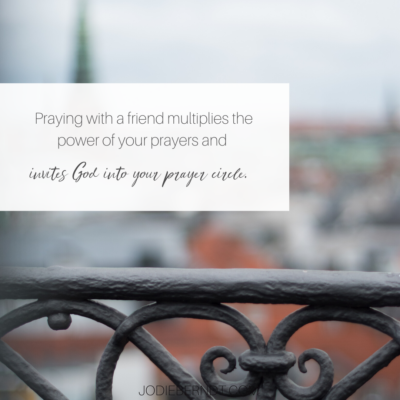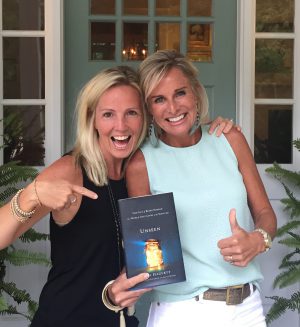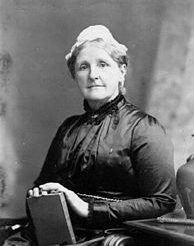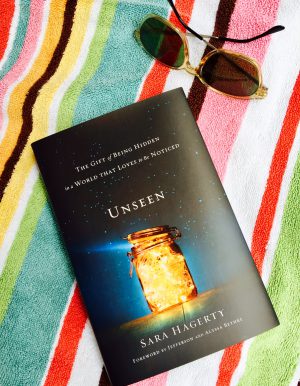Friends, you know I’m not writing too much these days—not a new book, anyway, and not many articles for this space or others. I’m actually keenly aware of my limitations, which may be why I am LOVING a new book that’s releasing today: The Gift of Limitations by Sara Hagerty.

Sara is among my favorite contemporary authors (you may remember me bawling into my beach towel before standing up and declaring—to literally everyone within earshot on Delaware’s crowded August seashore—that I had just finished “the best book on the beach”), and this latest release does not disappoint.
The Gift of Limitations is about finding beauty in our boundaries. It’s about sensing God’s presence—and even his purpose—when everything feels like Too Much. Too much laundry. Too many bills. Too many people living in your house this week because Somebody just had a baby and Somebody else came home to meet him and yet another Somebody’s sewer line broke, and all of the Somebodies are grown-up children you love who have children of their own who just want to eat Fruit Snacks and Goldfish from the secret shelf in your pantry when they are not napping in one of the FOUR cribs you set up or telling you or not telling you that they need to go potty.
Limitations is about finding beauty in places like that.
(And I did 😉.)
When I realized the book was dropping this week, I reached out to Sara to see if 1) she’d be willing to do a giveaway JUST FOR YOU, and 2) she’d let me share a sneak peek from one of my favorite chapters. And happily, she said YES to both!
If you want to win a copy (and the book is coffee-table pretty, so even if your current limitations mean you aren’t doing much reading, it’s worth getting just to look at), I’m sharing the giveaway details on my Instagram page. We’ll announce the winner on Friday, but in the meantime, here’s the excerpt.
And y’all. I picked this one because let’s be honest. We’ve all been there…
Beach Trip Gone Wrong
(An excerpt from The Gift of Limitations by Sara Hagerty)
Once a year, we drive through five states over two days to spend a week at the beach with my family. Two passengers on an eighteen-plus-hour road trip might likely feel cramped and uncomfortable. We have nine. Nine suitcases, nine beach towels, snacks for nine, sleep comforts for nine—favorite pillows, favorite stuffed animals, favorite blankets (the down comforter I inherited from a college roommate twenty years ago is now Eden’s and leaving a trail of lost feathers behind it). When the sliding door of the oversized van-SUV we drive opens as we stop for fuel or restroom breaks, the wall of snacks and luggage lined against it topples onto the pavement—every time.
Before the trip, it takes me nearly a week to make lists and place orders, and then it takes two days to pack, all in preparation for the six we actually spend at the beach. The disproportionate amount of time we spend preparing for the trip compared to the time spent with our feet in the sand and playing water games with cousins in the pool fades at first glance of the ocean every year.
One particular year, however, we brought not only nine overly prepared packers but also a nasty virus. For days into a week and beyond, the glands in my neck swelled up like golf balls, and it took all my energy to swallow, much less talk. I spent most of the trip either in bed or half-present and foggy. Without me, kids biked the rambling paths of this South Carolina beach town and built sandcastles. Nate lugged bags of beach towels down to the beach, and sandy bottoms back up to the beach house, day after day, as I struggled to sip water with a straw.
Conversations with nieces and nephews, late-night games, and catch-ups with my siblings didn’t happen that year. The world went on without me, and I merely endured the beach trip for which I’d spent a week preparing and after which I’d spend days unpacking.
One of the nights of the trip, as I heard the laughter from the games downstairs—games for which my voice couldn’t carry and my energy couldn’t sustain—I moped through getting myself to bed. This week felt like a microcosm of so much of my life: me, standing on the other side of the glass storefront, watching life happen inside, a life I couldn’t reach. Had this week not come after many instances where I knew what I wanted but couldn’t have, it may have been an isolated ache, but it was a bell on a long string of bells whose ringing made all the others chime.
As I padded around the bedroom that had become my cell, I toggled between praying, crying to God, and complaining, and then this question popped into my mind: What if I meant for it to be this way?
Hmmm… I thought. Surely this sickness is the devil or the result of carelessness, not from God.
I don’t venture to guess whether the question was from Him, but the mere thought of God initiating my standing on the other side of the windowpane was a relief somehow. For the first time, I bumped up against my limitations and felt respite.
What if it was God? What if it wasn’t the stress I’d been carrying in my body giving permission to a virus, or my not washing my hands thoroughly enough at rest stops? What if it wasn’t another near miss of an opportunity, like the kind I’d felt so often to be a part of my story?
What if it was Him?
What once may have made me feel angry or overlooked gave me a pause in which I felt safe. My life was directed. I didn’t need to orchestrate the details or secure the variables. I could exist and have life—as arranged by God—happen to me. Something sighed inside of me at this notion of being led, at the thought of my growing bouquet of stories creating a simple remembrance of this beauty and this truth: maybe I was made for this.

Something happened to my heart that week at the beach. Though I was missing out on in-depth conversations, heart-connections with my family, belly laughs, and the making of new memories, I felt like a child who woke up each morning wondering what the day would hold for her—less obligation, more receiving.
Hedged in by the limits of my body, I was a child again at the beach. Palms open—a shell collector, an observer, a mere onlooker, a beneficiary. And something about this role set my little-girl heart racing as if riding a ten-speed bike for the first time. I could be me, receiving, unsure but led.
The fence line felt good at the beach that year. Real good. As if I was always meant to be that child, parented through limits and coming alive within them.
❤️
There’s much more to Sara’s story, of course—along with Bible passages to consider and bonus material to explore at the end of each chapter. But as we wrap up this post… What about you?
What would it look like to bump up against your limitations and feel…respite?
That’s what I’m experiencing now, limited in my writing but oh-so-grateful for the gift of a new grandbaby—it’s a boy!—plus a church home where I get to teach Bible study, a house that I get to clean, and a husband I get to love (even when he steals all the covers). The writing may resume eventually, but for now I’m leaning in to a few verses from one of my most-favorite Psalms:
The boundary lines have fallen for me in pleasant places; surely I have a delightful inheritance. I will praise the LORD, who counsels me; even at night my heart instructs me. I keep my eyes always on the LORD. With him at my right hand, I will not be shaken. (Psalm 16:6-8)
Which is actually a great prayer for the people you love:
Heavenly Father,
Encircle ______ with your boundary lines; grant them a delightful inheritance. Counsel ______ and instruct them. May ____ keep their eyes always on you; let them not be shaken!
Amen
















































